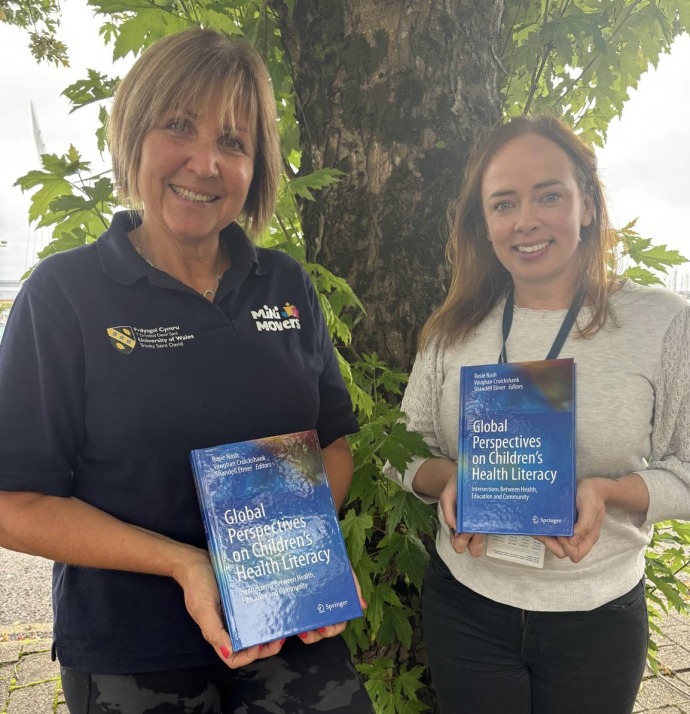Global perspectives on Children’s Health Literacy Book launch at Global Health Literacy Summit 2024

The Global Health Literacy Summit 2024, held recently in Rotterdam, provided a platform for experts around the world to showcase advancements in health literacy.
Among the many highlights of the summit was the launch of Global Perspectives on Children’s Health Literacy, featuring the work of academics from the University of Wales Trinity Saint David, Dr Nalda Wainwright, and Dr Kate Piper. Their co-authored chapter for the book focuses on their work in Wales on early childhood motor development and its critical role in promoting lifelong physical activity and well-being. It emphasises a forward-thinking approach to health, which centres on motor development in early childhood. By fostering confidence and motivation to engage in physical activity, this work promotes a strengths-based approach to health—focused on preventing ill health and supporting long-term wellness.
Dr Nalda Wainwright, Director of the Wales Academy for Health and Physical Literacy, said:
“We are so delighted that our work here in Wales has been showcased in such an incredible book looking at best practices globally. The recognition of our work in supporting health demonstrates the potential we have here in Wales to invest in our young children to prevent health conditions linked to inactivity”.
The case study featured in the chapter spotlights SKIP Cymru, an innovative professional development programme delivered by the University of Wales Trinity Saint David (UWTSD). SKIP Cymru trains teachers, pre-school staff, and health professionals across sectors, equipping them with the tools to support motor development in children. This cross-sector collaboration has been instrumental in enhancing health literacy in Wales and in ensuring that children are active, confident, and physically engaged from a young age.
Dr Kate Piper, Programme Manager for the BA Physical Education said:
“It is important to us that Health Literacy is seen as a wider holistic concept that not only includes understanding health information but also highlights the valuable resources around us that support our health. We were delighted to have the opportunity to write this chapter and consider the link between physical activity and health literacy.”
The chapter also highlights the ground-breaking collaboration between SKIP Cymru and Sport Wales, which has led to the development of specialised training for sports coaches. This ensures that physical and health literacy principles are embedded across educational, health, and sports sectors. In addition, the MiniMovers initiative was developed to empower parents with the knowledge and tools to support their children’s motor development at home. Through an accessible app, parents can support their children’s physical growth, ensuring they develop essential motor skills during these formative years.
UWTSD’s staff contribution to the book underscores the importance of early intervention and cross-sector collaboration to ensure children develop the physical skills needed for a healthy life. By training professionals and engaging parents, these programmes are setting a benchmark for global health literacy initiatives focused on prevention and wellness.




